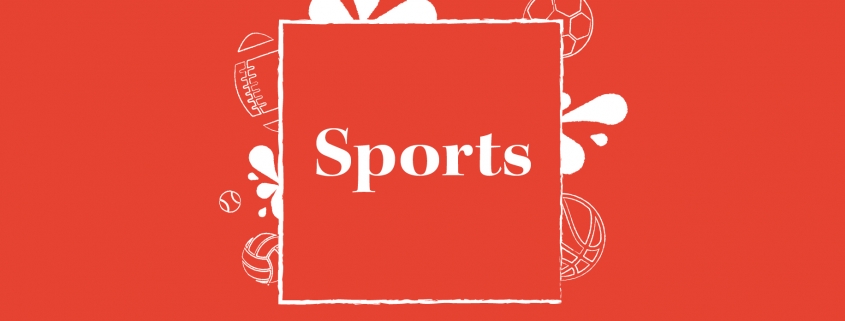808s and Fast Breaks: Team, label owners must make change, not just athletes and artists
Jacob Blake was shot in the back by a police officer seven times last Sunday. I still haven’t watched the video, and for the sake of my mental health, I probably never will. The description of a man with his back turned being shot at while his kids watched from the backseat was enough to keep me from clicking. I never watched the George Floyd video either, but I didn’t need to watch the full eight minutes and 46 seconds of a police officer burying his knee into Floyd’s neck for the damage to be done. The screenshot alone handled that.
Between the killing of Floyd, the video of Ahmaud Arbery’s killing, the last words of Elijah McClain, the details of Breonna Taylor’s killing and the seemingly endless other traumatic detailing of wrongful Black death, I was emotionally done for the summer.
Luckily, I had little to no responsibilities at the time. Imagine if the coronavirus pandemic hadn’t canceled my internship and I was expected to work during all that. Wait, did I mention this all occurred during a global pandemic?
I was free to cope at my own pace. Athletes, on the other hand, were not. According to the respective owners and commissioners of each league, athletes starting new seasons and finishing postponed playoffs were more important than dealing with Black people’s collective trauma around the world.
The NBA is more than 80% Black and has players with first-hand experiences with police brutality, such as the Houston Rockets’ Thabo Sefolosha and the Milwaukee Bucks’ Sterling Brown. A handful of players including Kyrie Irving were against the NBA restart, reportedly stating “whether we want to admit it or not, we are targeted as Black men every day we wake up.” Irving was subsequently labeled a “disruptor,” and he along with the other objecting players were told their voices would be stronger if games were played.
Players joined the bubble July 7, and games tipped off July 30. A majority of players knelt, wore Black Lives Matter shirts and inserted responses like “arrest the cops who killed Breonna Taylor” into their postgame interviews. The players genuinely tried to redirect public attention from their play to the Black Lives Matter movement, but with Damian Lilliard routinely dropping 60 points and Luka Doncic hitting 30-foot buzzer-beaters, activism was drowned out by in-game highlights.
The amplified voice that players were guaranteed heading into the bubble didn’t reach its promised height until the players stopped playing. When the Bucks chose to strike Game 5 against the Orlando Magic last Wednesday, the rest of the NBA and most of the sports world followed suit in sitting out.
By not stepping on the court, NBA players took control of their platform and demanded change. Everyone had no choice but to listen. As a result, a dormant Wisconsin police reform bill was immediately pushed into a voting session, plans to utilize NBA arenas as polling and voting locations were put into place and coveted playoff advertising slots were reserved to promote civic engagement. Three major initiatives with the potential to impact millions of lives came from just two days of no sports.
Imagine if the players had actually left the bubble. Better yet, imagine if it didn’t take athletes risking their careers for their billionaire team owners to take action. Could you imagine if the DeVos family, owners of the Orlando Magic and in-laws to Secretary of Education Betsy DeVos, genuinely wanted to better the Black community? What if more owners were like the Clippers’ Steve Ballmer, who in the last three years donated $300 million to nonprofits working in Black communities?
Maybe I’m a pessimist, but I can’t imagine a world where billionaire owners take an initiative to protect the communities their money-making athletes come from. Even in situations when it seems like the owners are doing the right thing, it feels like there’s a catch the public isn’t privy to. For example, let’s execute the purpose of this column and switch over to the music industry.
After The Weeknd pledged $500,000 in donations to the Black Lives Matter movement, he challenged major music labels to do the same. Warner Music pledged $100 million to social organizations the very next day. It’s a great story of a label swiftly responding to a call to action and repaying the community that helps make it rich, but that’s not where the story ends. The part that goes untold is that Warner Music stock went public that same day and with the free press of a nine-figure donation, its shares increased by nearly 20%. Warner Music Owner Leonard Blatavik went on to add an additional $6.6 billion to his net worth, or 66 times what he donated earlier that day.
Powerful label owners like Blatavik are no different than powerful sports owners like the DeVos family. They have enough capital and connections to make changes wherever and whenever they see fit. As impactful as the athlete strike was last week and as meaningful as contributions from artists like The Weeknd are, athletes and artists aren’t going to be the ones to push the needle on ending police brutality.
The powerful people who cut their checks should have to burden that responsibility.
Taj Mayfield is a junior writing about the connections between music and sports. His column, “808s & Fast Breaks,” runs every other Monday.

